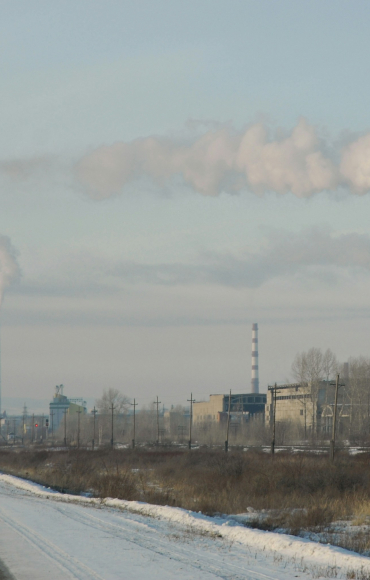
The Poison of Prishtina That Makes Every Breath a Struggle
The Poison of Prishtina That Makes Every Breath a Struggle A winter morning in Prishtina often begins under a heavy, grey sky, where the air feels thick and each breath reminds you of the...
Pristina - Balkan Green Foundation (BGF), with the support of the Heinrich Boll Foundation, organized a roundtable discussion on "Decarbonization of the heating sector in Kosovo". The roundtable presented the paper which contains the best practices used by European and regional countries – actions which should be considered to be adapted in Kosovo in order to improve the situation of the heating sector in the country.
Visar Azemi, BGF’s Executive Director, said that “Kosovo is in the process of drafting the Energy Strategy, a document which now more than ever should present bold steps to decarbonize the energy sector (including heating), so that the impact on the environment and health is lower”. Mr. Azemi also said that “The future is definitely towards sustainable forms of heating which are environmentally friendly, these are increasingly made possible thanks to new technologies and renewable energy sources which are becoming cheaper.”
The Minister of Economy, Artane Rizvanolli, said that “raising awareness about energy consumption is extremely important to happen in order to increase energy savings, so that they do not reflect on the next year’s tariffs, the behavior of the citizens shall change, in order to release less pollution and to have less polluted air.” Furthermore, the Minister emphasized that “the revision of the Energy Strategy that will happen soon, will have the main focus on the overall decarbonization of the energy sector. The example of the heating plant in Gjakova is very important, because of its replacement of fuel from heavy oil to biomass, which reduces carbon dioxide emissions from 49 thousand tons to 615 tons - which is a very big difference." The Minister stressed that "soon feasibility studies will be conducted for similar heating plants in the main centers of Kosovo and it will be seen if the example of Gjakova can be replicated. Such action would be a very good step for the decarbonization of the heating sector in the country."
Arven Syla and Besfort Kosova, co-authors of the analysis "Decarbonization of the heating sector in Kosovo - Best Practices", among others stressed that “the main mechanisms used to provide sustainable heating solutions can be divided into these instruments: financial mechanisms - incentive programs, tax policy, awareness-raising, standards for combustion equipment, prohibitions and restrictions on the use of solid fuel and standards of minimum requirements." They also stressed that “countries that are applying these mechanisms have only supported energy technologies that are sustainable and offer high energy efficiency. Supported sustainable energy technologies are: Heat pumps, boilers and high-efficiency equipment, solar thermal systems, and renovation of buildings with standardized material”.
Furthermore, the roundtable discussion mentioned the urgent importance of banning coal for heating from households and the business sector, increasing the usage of other heating methods which are less harmful to the environment, for the users themselves, and the community.
The open discussion with the participants stressed that the road to the decarbonization of the heating sector will be challenging, especially if no measures are taken now, the environmental and health situation will only worsen. The discussion was followed by numerous presentations of views by participants who stressed the importance of decarbonization, not only in relation to existing heating alternatives and options that citizens have but also in relation to the health of citizens. The importance of energy origins was also discussed, which may seem better and more environmentally friendly while on the back have unsustainable forms of production and emissions and which require long-term and sustainable solutions.